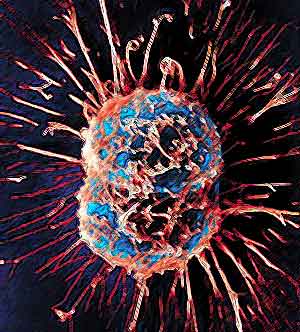
These studies were published in the October issue of the International Journal of Cancer. Chief of surgical oncology at UC Davis and senior author of the study, Richard Bold and his colleagues could successively slow down the production of pancreatic cancer cells, by depleting the level of arginine in the cell. They measured the amount of arginino succinate enzyme required in a pancreatic cancer tumor to produce arginine.
87% of the times, this particular enzyme was not detected. Hence researchers conclude that because of its inability to produce amino acid, majority of this particular kind of cancer need arginine for their cell growth. With the assumption that pancreatic cancer cannot form arginine, they further carried out more tests. Here they tested the pancreatic cell lines, which reveal the differing arginino succinate synthetase level in the pancreatic human tumors.
Bold says, “There have been few significant advances in 15 years of testing available chemotherapy to treat pancreatic cancer. The lack of progress is particularly frustrating because most patients are diagnosed after the disease has spread to other organs, eliminating surgery as an option. We have to turn back to basic science to come up with new treatments. There is a dire need to find new options for these patients. While our findings do not suggest a cure for pancreatic cancer, they do promise a possible way to extend the life expectancies of those diagnosed with it.â€
He explains that the average survival time for those diagnosed with pancreatic cancer is just four and a half months, although chemotherapy can extend that prognosis up to six months. The researchers are trying very hard to find a cure for this disease.
While keeping an eye on the lowest levels, the researchers reduced the amount of arginine in pancreatic cell line cultures. This experiment was done with the help of an enzyme cut-off from the Mycoplasma bacteria – arginine deiminase. In order to increase its circulatory time and size, polyethylene glycol chains were added to it. This experiment yielded successful results. It showed that after the introduction of the arginine deiminase enzyme in the pancreatic cancer cell lines, the cell formation was reduced by 50%. In order to be absolutely certain of their findings, experiments were undertaken on mice. The results matched, the researchers had found a unique way to reduce the growth of pancreatic cancer cell by 50%. Bold says that “Instead of killing cells as with typical chemotherapy, we instead removed one of the key building blocks that cancer cells need to function.â€
“We’re looking at whether we can combine this treatment with certain kinds of chemotherapy. This additional research is needed to inform the clinical work and move it forward more quickly. The better we understand this process, the more we can use it in the fight against pancreatic cancer,†says Bold.
Bold and his fellow researchers are further trying to discover new ways of increasing pancreatic cells sensitivity to arginine deprivation.
In order to achieve an in depth analysis regarding this issue, researchers have started designing human clinical trials with the help of Polaris Pharmaceuticals, which is an arginine deiminase manufacturer. On this Bold says, “We’re looking at whether we can combine this treatment with certain kinds of chemotherapy. This additional research is needed to inform the clinical work and move it forward more quickly. The better we understand this process, the more we can use it in the fight against pancreatic cancer.â€
Metabolic interruptions like this are being studied for their use in other forms of cancer, like in blood cancers like leukemia and lymphoma.
